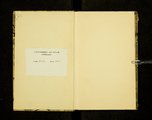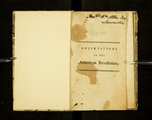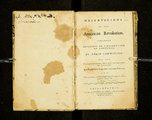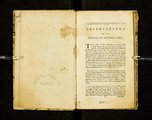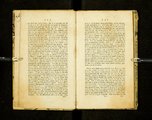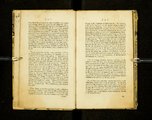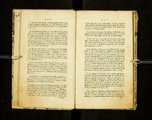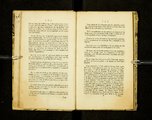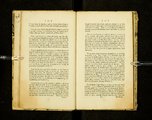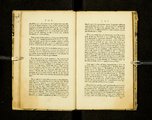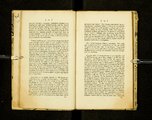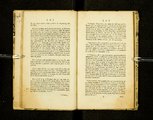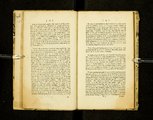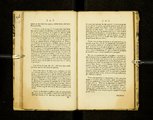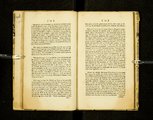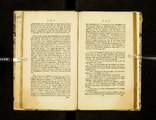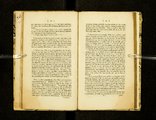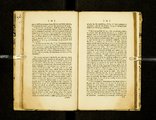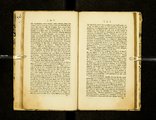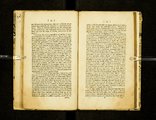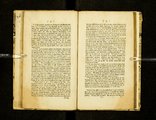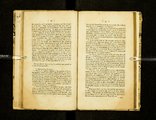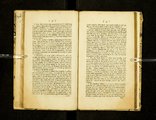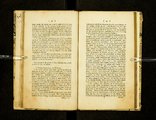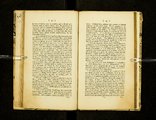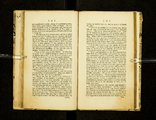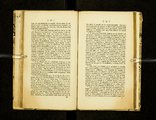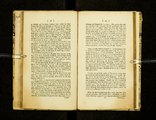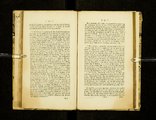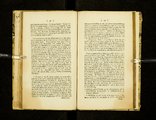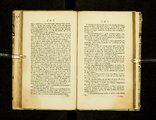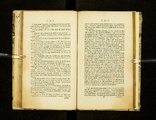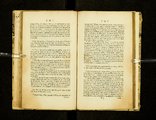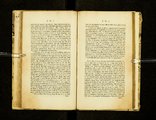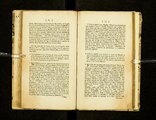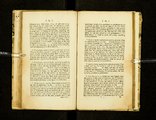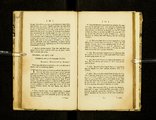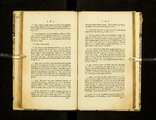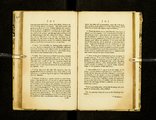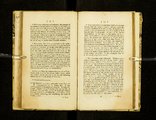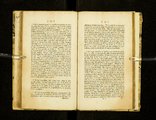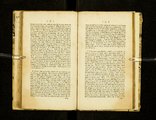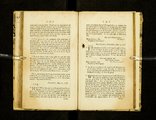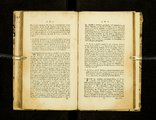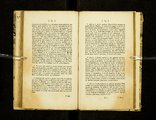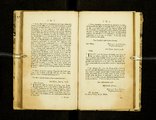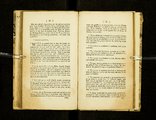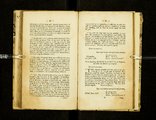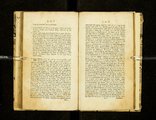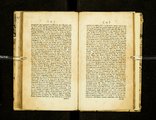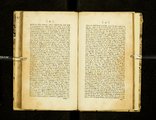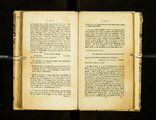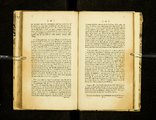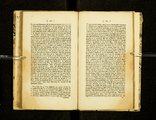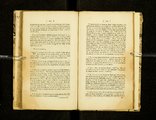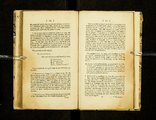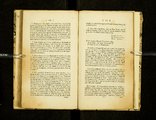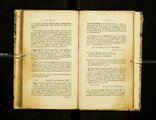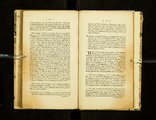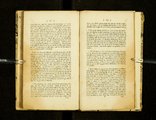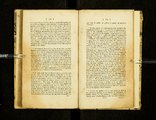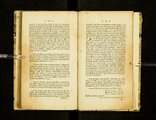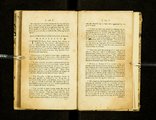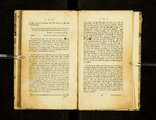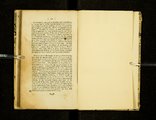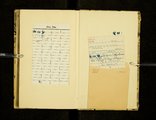| OCR Text |
Show [18] [19] AND to inioree and explain the reafons of this mm: fier, they publiihed an addreis to the people othreatf rrth of Oktober, 1774, the Congreis wrote a letter to Britain. Whoever {hall read the inflow of theie train-- notions in a future age, will perhaps be" altonifne‘d that after the deiizgn of our ene" its was thus clearly maniteib‘t‘l, no oth:r rneallires were taken to counterac‘t the. . To fupnolb that they would give up the plan {0 regularly formed end to deliberately undertaken, Without the molt Cogent neceility, was etrtainly abiiurd. VVar therefore IT was in conformity to thefe fentiments, that on the general Gage, intreating him to tor-bear r'rrcaliiies tending to irritate the people ot‘ Maiiireliriietts-tlay, and at the fame time, " reiolved unanimoufly, that they be advilz'd Hill to conduét themfelves peaceably towards his excellency general Gage, and his ma'ei'ty's troops now itzrtione in the town of Botton, as far as can poihbly be coniiftent with their immediate fatty, and the {ecurity of the town; avoiding and difcountenuncing every violation of his ma- {Child have been coniidcred as inevitable, and every prom villa-n mad»: for it by large importations of cloathing'and jei'cy's property, or any iniiult to his troops; and that they miim y flores, as well as by negotiations with the l‘lVLllS peaceably and firmly perlevere in the line they are now of Great-Britain. conducting themlclves on the defenfive." sr. things however were not only neglccf'red, but ‘ contrary road was puriucd; to that the war really :ound us in a fituatitm far more naked and unpro-v vided than was natural to us. In anfwer to this however it is to be obtic'rvetl again, that mankind reafon from their feelings. That we Were really attached to Great-Britain, and {ought only to be united to her, if it were pofiible to THIS Congrefs having given it as their opinion, that another {hould meet on the tenth of May then next, dillfolved itlelf on the 20th of October. IT appears that while they were thus foiicitous for peace, our enemies had taken their determinations unalterably; for though tie letter of lord Dartmouth to general Gage he to, without the total proitration of all our rights. does not appear, the antwer of the general of the 15th This attachment in fact blinded us to our intereits to December 1 conviaion. i e ' / 4' contains . . the etirllett . . . fiiys,---" Your lordihip's idea oi difarming certain provinces would doubtleis be conhitent with prudent" and fatiet' 3' but it neither is 7 nor has been )raeticable ‘ . ‘ ' without havrntr reCour e to lorce and bein»r matters of the countr o ' o y ." ('tl‘eélually, that a preparation for war, or a threat of independence, would have created the moit violent ferment, Congreis (whatever may have been their private fenti-r ments) were then, as at preterit, under a necethty of con~ forming to the popular opinion. Great reliance was placed upon the clemency of the prince, the juitice of the per pie, and the commercial interefls of the empire. Be- fides all this, war with Great-Britain was a moil ferious THEIR cmrfequent conduct appears Fully eonfonant with this general plan, for the petition to the king received no other notice than to be thrown on the table of parliament among the mats of American papers, by which his intention Oliji Cl. It would have been fuch to any power on earth. Succei‘s was at leait highly doubtful. iThe coni'equence of victory on their part mutt have been on ours a total fubjetiion. However clear might be the right of rc~ fillence in eates of abi‘olute necefiitv, it feemed to be highly proper, that this neeeflity {liould clearly appear before the previous {hos to rehi'tance were taken. On the whole, it was perhaps hardly juiiifiable to appeal to to take part with our fellow {ubjeé‘ts againtt us was fully declared. His minitters avowed the determination to compel us to obey the aets they had paiTed; and a very coniiderable force was {em out for that purpote. In the month of February, a refolution was agreed to on a motion of one of the miniiters, which was at that time called a conciliatory motion; and which (allowing us to politzls common {cute and common lpirit) was directly the reverfe. arms while the remote" probability ren'raincd of obtaining without them the great obj-nit of peace, liberty and liafety, This will appear from the motion itfelf, and from the {exile of the. {econd Congrefs upon it.---" The houfe in, 3 ComQ ,2, I 'r mittec: |



